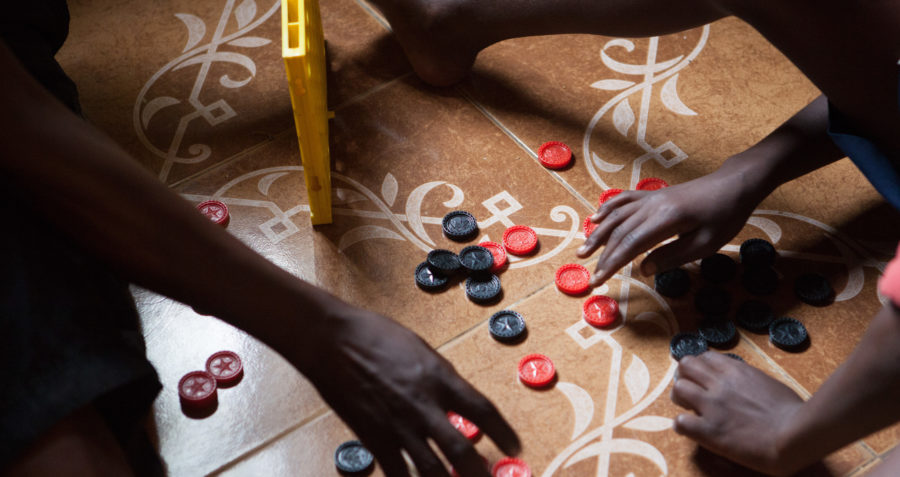New pandemic, same blame game
 © 2017 Gemma Taylor for Frontline AIDS
© 2017 Gemma Taylor for Frontline AIDS
Rights-based organisations in Africa are reporting that stigma against lesbian, gay, bisexual and transgender (LGBT) people is on the rise as a result of the COVID-19 pandemic.
Already marginalised because of their sexual orientation and gender identity, some members of the LGBT communities in Malawi, Kenya and Cameroon are now finding that they are being blamed for coronavirus.
It’s no coincidence that our Rapid Response Fund has seen applications for emergency funding triple since the start of the outbreak. The funds we provide are helping local organisations provide urgent assistance, such as life-saving food and safe accommodation, as well as paying for personal protective equipment so they can continue outreach work.
Pandemic scapegoats
On the Kenyan island of Lamu, a prime tourist destination in the Indian ocean and predominantly Muslim, the economy is in trouble and jobs are hard to come by. Muamko MPYA, a community-based organisation advocating for the health and safety of LGBT people, is concerned that its members are being scapegoated for the current global crisis.
The executive director and trans activist Muhammad Gaji warns: “Because of COVID-19 discrimination is totally high. This is the holy month of Ramadan so we’re facing double stigma and discrimination. They [local people] say that we’re the ones that brought the coronavirus to Kenya because we are cursed and doing things differently from the gods who created us.”
At the Dzaleka refugee camp in Malawi, it’s a similar story. The Centre for Human Rights and Rehabilitation (CHRR) supports LGBT refugees and asylum seekers there and acting executive director Michael Kaiyatsa believes they are currently on the receiving end of even more stigmatisation than before.
“The abuse that they are subjected to has got worse,” he says. “People were accusing LGBT people of bringing in coronavirus. The government and other organisations are providing basic protective items at the camp like soap and sanitisers. But you find that LGBT people are usually sidelined. They’re denied access to these things.”
In Cameroon, human rights organisation Défenseurs Sans Frontières (DSF) has reported and denounced instances where LGBT people have been publicy shamed by ill-informed healthcare providers for the spread of coronavirus, and is advising the LGBT community to keep a low profile at the moment for its own safety. According to Stéphane Aboa, DSF’s executive coordinator, “such ignorance is a real hindrance in the fight against HIV.”
Rapid Response Fund needed more than ever
Some of the LGBT people that Muamko MPYA, CHRR and Défenseurs Sans Frontières work with are now at crisis point as the pandemic has exacerbated what were already very difficult circumstances. This is why the Rapid Response Fund is so vital.
The Dzaleka refugee camp in Malawi has been facing severe food shortages since 2018 and rations have been reduced by half. Some of the LGBT refugees and asylum seekers were already living hand to mouth, existing on piece work or sometimes transactional sex. But COVID-19 has put paid to this.
Kaiyatsa says: “Most of the LGBT refugees are having to go without food. Their rations don’t last the month, so they asked us to support them with an allowance so that they can buy food.” Our fund is helping them to do this, and CHRR is also sharing information about how to stay safe from coronavirus. “We are doing this bearing in mind that this is a highly stigmatised group which may not be able to get information that easily,” Kaiyatsa says.
Hard times ahead
In Cameroon, Défenseurs Sans Frontières is using the fund to extend a lifeline to three members of the LGBT community who had already fallen on hard times when rejected by their families.
The organisation had supported them to set up a food stall and a small makeshift shop but curfew and social distancing restrictions have made it impossible to continue operating and the three have lost their income. Défenseurs Sans Frontières has stepped in to pay emergency housing costs and provide them with provisions and basic care kits.
On Lamu, Muamko MPYA is using our fund to pay an additional month’s rent for three young peers who were attacked carrying out HIV prevention work. The organisation works to reconcile families that have ostracised their children because of their sexual orientation and gender identity. It does this by first holding awareness sessions with area chiefs who are key influencers in their communities. Ordinarily this would take place at a two-day workshop with several area chiefs participating, but physical distancing restrictions mean that it can now take up to a month to carry out the same amount of work.
In Malawi, CHRR has had to put on hold a training workshop for healthcare providers at the Dzaleka refugee camp which would have addressed discrimination based on sexual orientation and gender identity . With COVID-19 being seen by some as a ‘plague’ brought by LGBT people, such anti-stigma initiatives will be needed more than ever once normal life resumes.
Support our appeal
We have launched an emergency fundraising appeal for our Rapid Response Fund which was established in 2016 to help with urgent situations where LGBT people struggle to access HIV services because of stigma, discrimination and the threat of violence.
Tags
COVID-19LGBTRapid Response Fund
Will you help us end aids?
I would like to make a donation of:
Please enter the amount you would like to donate, ie: '10.00'
